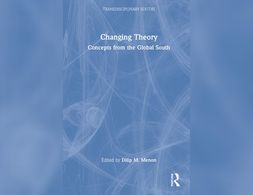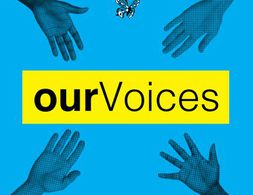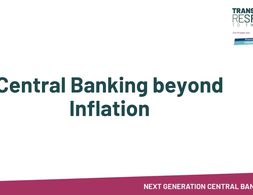✕
450 results
This edited volume explores how dependency theories can be adapted and applied to understand limits and possibilities for development in Latin America and Europe It explores core periphery relations across different sets of countries specific mechanisms of dependency as well as the role of race and gender in dependency analysis …
In this new book Smith returns to Solow s classic productivity paradox which essentially states that we can see automation everywhere like the spheres of leisure sociality and politics but not in the productivity statistics He examines why labor saving automation in the service age in the Global North has …
This book is an original, systematic, and radical attempt at decolonizing critical theory. Drawing on linguistic concepts from 16 languages from Asia, Africa, the Arab world, and South America, the essays in the volume explore the entailments of words while discussing their conceptual implications for the humanities and the social sciences everywhere.
"Stabilise, liberalise and privatise" has, since the debt crisis of the early 1980s, been the mantra chanted at developing countries by international financial institutions, donor countries and newspaper columnists with quasi-religious conviction.
A Heterodox Approach to Economic Analysis This important new book introduces students to the fundamental ideas of heterodox economics presented in a clear and accessible way by top heterodox scholars It offers not only a critique of the dominant approach to economics but also a positive and constructive alternative Students …
A Plan to Save the Future from Extinction Climate Change and Pandemics A plan to save the earth and bring the good life to all In this thrilling and capacious book Troy Vettese and Drew Pendergrass challenge the inertia of capitalism and the left alike and propose a radical plan …
"First published more than a decade ago, Globalizing Capital has remained an indispensable part of economic literature. This classic book emphasizes the importance of the international monetary system for understanding the international economy. The second edition, published in October 2008, has consistently appeared on syllabuses since its release
What are the implications of the politics of "behavioural change"? Alexander Feldmann took a closer look for you on nudging and framing and if this is a legitimate instrument being used by the state to make us behave better in terms of our carbon footprint.
Pluriverse: A Post-Development Dictionary contains over one hundred essays on transformative initiatives and alternatives to the currently dominant processes of globalized development, including its structural roots in modernity, capitalism, state domination, and masculinist values.
An essay of the writing workshop on contemporary issues in the field of Nigerian economics: In Nigeria, it appears that there is nothing in the constitution, which excludes the participation of women in politics. Yet, when it comes to actual practice, there is extensive discrimination. The under-representation of women in political participation gained root due to the patriarchal practice inherent in our society, much of which were obvious from pre-colonial era till date.
The course will teach students to analyze the goals, implementation, and outcomes of economic policy.
After completing the module, participants should be able to have general overview on the theory of commons. They can differentiate between neoclassical, new institutional and social/critical commons theory and can use these theories to assess real life common-pool resource management and commoning pratices.
This syllabus provides an overview of the contents of the course "Understanding Economic Models" at the University of Helsinki.
This article outlines the fundamental challenges of democratically planned economies and categorises proposed models into six groups, each of which approaches planning and coordination at different levels of authority and between myriad economic units in a particular way, taking into account efficiency as well as democratic principles and environmental and social sustainability. Through a classification system based on decision-making authority and mediation mechanisms, the article provides a framework for understanding and comparing these models. By examining their different approaches, it offers insights into the complexities and potential paths of democratically planned economies in the 21st century.
This historic timeline presents economic events, economic thinkers and schools of thought from the 18th century until the 2007/2008 financial and economic crisis with short texts on the respective event or perspective.
In this article, Perry Mehrling, a professor of economics at Barnard College, presents and discusses three theories of banking which are guiding bank regulation. These are credit creation theory, fractional reserve theory and debt intermediation theory.
A stock-flow-fund ecological macroeconomic model
This Forum in the Boston Review deals with the role of economics in modern policymaking and presents a wide set of perspectives on the topic. The opening text by Suresh Naidu, Dani Rodrik and Gabriel Zucman aims to answer a range of common criticisms against the modern, neoclassical science of economics and its influence on public discussions.
The effects of the 2020 pandemic on the Latin-American region: a thorough before-after analysis.
These notes aim to clarify some basic features and implications of gross capital flows In the context of the 2007 08 Global Financial Crisis and the 2010 12 Eurozone Crisis trade imbalances and capital flows received a lot of attention from academics policymakers and the media However there is still …
This video explains what the term 'Feminist Economics' describes and goes into detail on how feminist economists use methodology differently, why they advocate for diversity in research and how to look into preconditions for the functioning of our economies. It, additionally, highlights the link between feminist economics and the study of climate change.
In this podcast, Laura Basu focuses on how capitalist markets and nation-states perpetuate structural racism.
Are there any limits to government spending? In times of war, particularly? And what about the aftermath of such special times when treasuries seemingly feel unshackled from any rules? And are those times really any special? That is what this paper is about.
Exploring Economics, an open-source e-learning platform, giving you the opportunity to discover & study a variety of economic theories, topics, and methods.
Pluralism includes mainstream economics. Our campaign for pluralism, including this series, have generally focused on ideas outside the mainstream on the basis that it gets plenty of attention already so we want to spend our time exposing people to alternatives. Nevertheless, mainstream ideas deserve some attention. On top of this, a curious feature of modern economics education is that some of the best ideas from mainstream economics are not even taught to undergraduates! During this series I will explore such ideas, starting today with the market construction technique known as ‘matching’.
Recording of the Workshop “The collateral supply effect on central banking”, 04.02.2021, part of the "Next Generation Central Banking - Climate Change, Inequality, Financial Instability" conference by the Heinrich-Böll-Stiftung
This panel was part of the conference "Next Generation Gentral Banking - Climate Change, Inequality, Financial Instability" 03. - 05.02.2021.
Central banks have once again proven to be the first line of defense in crisis-ridden times. With their far reaching actions they prevented the world from experiencing a collapse of financial markets on top of the severe health and economic crisis caused by Covid-19.
This course focus on the behaviour of individuals from an pluralist economic and an interdisciplinary bevavioural science apprach.
In this webinar for the Princeton Bendheim Center for Finance, Nobel Prize winner William Nordhaus explains the main problems regarding the economics of a low-carbon energy transition.
Exploring Economics, an open-access e-learning platform, giving you the opportunity to discover & study a variety of economic theories, topics, and methods.
How should we discuss welfare when understanding the role of growth and the viability of Growth-led development? One option is to look at subjective happiness. This provides an anti-materialistic view which may superficially appear more compatible with significant reductions in consumption in order to remain within safe ecological limits.
We use cookies on our website. Click on Accept to help us to make Exploring Economics constantly better!




























